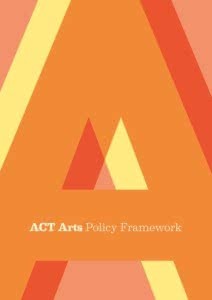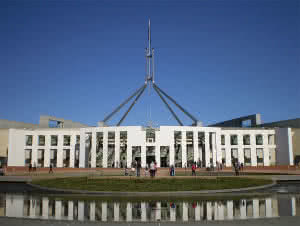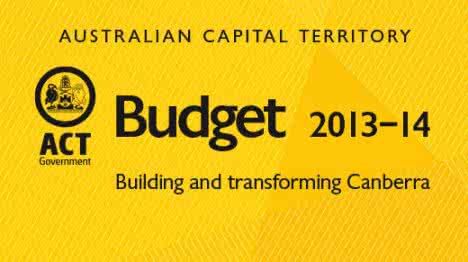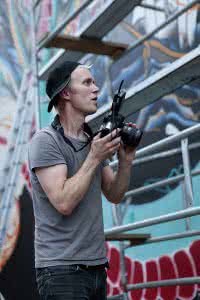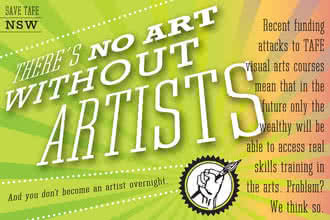The Childers Group believes that the 2013-2014 ACT Budget is the most important budget for the regional arts community in a decade.
The Childers Group acknowledges that the ACT Government is a significant supporter of the arts development of the ACT and neighbouring regions. The Government is the primary financial contributor to over twenty key arts organisations, which enable the community to access a diversity of programs and enable professional artists to progress their careers, many reaching national and international audiences. The Government also supports individual artists directly through the ACT Arts Fund and its associated programs.
In this Centenary year, we’re experiencing the maturing of much of this activity, with a rich and exciting array of events and programs in which our community and visitors can participate. Therefore, the 2013-2014 ACT Budget is the most important one for the arts in a decade, as it must build on the momentum ignited by the Centenary.
It’s an opportunity too good to miss.
What services does the Childers Group believe are most important for the Territory?*
 A modern and mature society such as the ACT’s deserves ongoing access to a wide variety of arts and cultural programs. In general, the Childers Group supports the broad intent of the programs delivered by the ACT Government through its two main arts and cultural bodies – artsACT and the Cultural Facilities Corporation. However, the Group also advocates for ongoing review to ensure that the programs delivered are cost-effective and productive. Consulting with the arts community is critical in any review process, and the Childers Group is able to assist in this regard. Funding levels must also be regularly revisited to ensure that delivery is professional, sustainable, and reaching the community.
A modern and mature society such as the ACT’s deserves ongoing access to a wide variety of arts and cultural programs. In general, the Childers Group supports the broad intent of the programs delivered by the ACT Government through its two main arts and cultural bodies – artsACT and the Cultural Facilities Corporation. However, the Group also advocates for ongoing review to ensure that the programs delivered are cost-effective and productive. Consulting with the arts community is critical in any review process, and the Childers Group is able to assist in this regard. Funding levels must also be regularly revisited to ensure that delivery is professional, sustainable, and reaching the community.
What infrastructure priorities should the Government consider initiating in the next four years?*
- The realistic support of key arts organisations – ensure that through the ACT Arts Fund CPI continues to be provided to Key Arts Organisations on an annual basis.
- Appropriate pay for arts workers – ensure that there are no professional arts workers employed by Key Arts Organisations earning less than the average Australian wage of approximately $55,000 per annum. The Childers Group advocates for the benchmarking of professional arts worker salaries with salaries in the Community Sector and with arts personnel in other states and territories. Payment of ACT arts workers’ salaries commensurate with their skills and experience will ensure the retention of qualified people with the necessary expertise to manage Canberra’s arts and cultural services. It will also ensure the sound management and development of strong policies within the key arts facilities built by the ACT Government.
- Related to pay for arts workers is the critical issues of superannuation and long-service leave provisions – the increase in superannuation up to 12% begins in 2013 and increases steadily over the next five years and will have an impact on all funding, for organisations and one-off projects. The position of arts organisations in relation to retaining staff and meeting ACT long-service leave obligations is also a real and increasing cost attached to the $55 per annum figure mentioned above. The arts have obligations like any other business and if there is a commitment to addressing retention of artists and arts staff in the ACT then there are real costs attached to that – more so than other states e.g. there are greater long-service leave obligations in the ACT
- Private-sector philanthropy – there is an urgent need for an incentives-based approach that brings together business and arts in the ACT, not necessarily paying an individual to broker relationships but rather developing a suite of strategic benefits for investment by business and individuals in the arts. We strongly advocate for the ACT Government to provide seed-funding in the first instance.
 Ongoing funding of the You Are Here festival – You Are Here is a cross-arts festival showcasing the ACT’s alternative arts and underground culture. It highlights the energy, innovation and talent of Canberra artists past and present, presenting and promoting their work in non-traditional venues, revitalising inner-city spaces and attracting new audiences. The Festival is one of the most tangible outcomes of the build-up to the Centenary and considerable support for its continuation was raised during the Childers Group forums in 2012. We estimate that the Festival requires a minimum of $150,000 per annum over the next three years to build on its successes to-date and become a regional and state-wide cultural drawcard. It is essential to showcase the art forms of youth and to engage new audiences with contemporary ideas and arts practice.
Ongoing funding of the You Are Here festival – You Are Here is a cross-arts festival showcasing the ACT’s alternative arts and underground culture. It highlights the energy, innovation and talent of Canberra artists past and present, presenting and promoting their work in non-traditional venues, revitalising inner-city spaces and attracting new audiences. The Festival is one of the most tangible outcomes of the build-up to the Centenary and considerable support for its continuation was raised during the Childers Group forums in 2012. We estimate that the Festival requires a minimum of $150,000 per annum over the next three years to build on its successes to-date and become a regional and state-wide cultural drawcard. It is essential to showcase the art forms of youth and to engage new audiences with contemporary ideas and arts practice.- Increased support for one-off arts activities – the ACT Arts Fund’s ‘project round’ supports one-off activities for individual artists and groups of artists to initiate and develop their own independent projects. Key arts organisations provide core infrastructure, but they cannot be ‘all things to all people’, nor do they receive program funding to engage artists on major projects. The Project Funding category is – regrettably – supporting fewer projects each year due to the increasing cost of delivering arts projects; this is especially true of the performing arts. The Childers Group strongly advocates for this category to receive additional funding of $250,000 per annum over the next three years. This is particularly important in building on the momentum of the Centenary celebrations.
- A dance hub – Ausdance ACT recently conducted a review of dance facilities in Canberra. The organisation found that the numbers of dancers, particularly in schools and other cultural groups, is under-reported, but statistics indicate over 10,700 people participate in dance in the ACT. The Ausdance review found that there is an urgent need for good facilities in the ACT. Building on the ‘hub’ model, Canberra needs a high-quality dance hub with state-of-the-art facilities. The facilities could be shared between a number of organisations, offering space for schools, classes, and our independent dance creators and choreographers as well as performers. Locations that are currently under-serviced and would be suitable sites include: the inner sections of central Canberra, Gungahlin , Central Belconnen, South Tuggeranong, and Weston Creek. The Childers Group commends the review and endorses the recommendations.
- A world-class artist-in-residence program – The ACT region has all the ingredients to offer a world-class artist-in-residency program for all art forms: a planned and accessible city, a seat of modern democracy, a suite of national cultural institutions, over twenty key arts organisations, nationally recognised tertiary education providers, a vibrant urban environment surrounded by natural beauty and pastoral landscapes, a network of country towns, and a diverse and engaged population. Artist-in-residency programs offer time and space to create, but also help to bring in national and international artists to work with local artists and the community. Recently the ACT Government developed a policy statement and tool kit, along with a small amount of funding for 2011/2012 and 2012/2013. The Childers Group strongly advocates for ongoing funding of $200,000 over the next four years in order to fully realise the potential of the program.
- Significantly enhanced arts-in-education services – the establishment of an Arts-in-Education Officer position would build relationships, partnerships and programs between the Education Directorate and the Community Services Directorate. Ideally this should be a Senior Officer Grade C, paid for by the Education Directorate, with the officer spending 50% of time in Education and 50% at artsACT. In the first instance, this should be a 3-year initiative. Similar initiatives in other states e.g. WA, have proved very beneficial. Establishing and consolidating existing links between artists, arts organisations and schools and the tertiary sector should be a key component of the work. Engagement in the arts throughout a child’s schooling, including early childhood, has immeasurable benefits which are now both quantifiable and proven in countries that have invested in strong arts programs within their schools.
- Improved arts publicity and promotion services – the arts are an important tourist attraction in Canberra. To increase publicity for the arts there needs to be a specific ACT Government program to ensure closer liaison between the arts sector-local and national, and ACT Tourism. We are seriously missing out on creative marketing that effectively and powerfully links the cultural attractions and food and wine trails of our region. This has been done to great effect in Victoria and Tasmania. The Childers Group believes that with a more strategic approach cultural tourism could be strengthened in our region.
- A whole-of-government service approach to arts development – encouraging all directorates and agencies to examine ways in which they may directly or indirectly support the arts would enhance cultural life in Canberra. For example, potential exists for the development of collaborative arts arrangements with health, education, and heritage. To make this a reality, the Childers Group recommends the creation of specific position within the ACT Government to facilitate connections and multi-directorate programs and projects.
- Building creative partnerships with the regions – in many ways the ACT not only services the arts and cultural needs of its own citizens but also those who live in the neighbouring regions. The regions have their own strengths and challenges, but greater partnerships between the ACT and the regions would result in deeper and more diverse opportunities; additionally, it would further cement this part of Australia as one of the most creative, leading to an increase in cultural tourism. The Childers Group advocates for the establishment of a specific Regional Partnerships Fund at $100,000 per annum over the next three years and to be delivered by artsACT in close consultation with the regional arts development offices such as Southern Tablelands Arts (STARTS) and South-East Arts Region (SEARS).
Should the Government maintain its current suite of services?*
Yes, the ACT Government must maintain its current suite of arts and cultural services. However, it should also investigate ways of improving the services to maximise their reach into the community and ensure that artists are receiving the support needed. Funding realistically is the key, as is ensuring organisational sustainability and growth.
How can the Government deliver current services more efficiently and productively?*
In broad terms, the Childers Group supports the notion of arts hubs – co-locating similar organisations to rationalise administrative costs, to increase community access, and create an overall sense of vibrancy. However, we also believe that arts hubs are more appropriate to some art forms than others – for example, dance (as mentioned above) and visual arts at the Kingston Foreshore – and that in some instances co-locating dissimilar organisations may also have positive results – for example, co-locating the ACT Writers Centre with ScreenACT may result in positive synergies. The Childers Group strongly advocates that there is more work to be done to realise the potential of arts hubs work, particularly in terms of sector commitments versus individual organisation commitments.
Are there any services the Childers Group considers that the community should make a direct contribution to (a fee for service)?*
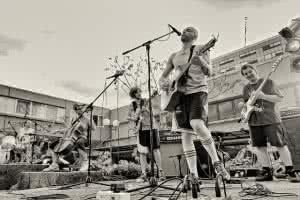 There is already a considerable fee-for-service culture in the ACT’s arts sector. For example, most programs and workshops provided by the ACT Government-funded key arts organisations have a fee attached, as is membership of organisations. In general, the Childers Group supports a fee-for-service approach, but also acknowledges that fees need to be kept affordable in order to maximise accessibility. It should be recognised that for many communities participating in arts activities is as much about social interaction than creative production and these activities should be low-cost or free wherever possible, which is consistent with the accessibility theme raised in the Loxton Report.
There is already a considerable fee-for-service culture in the ACT’s arts sector. For example, most programs and workshops provided by the ACT Government-funded key arts organisations have a fee attached, as is membership of organisations. In general, the Childers Group supports a fee-for-service approach, but also acknowledges that fees need to be kept affordable in order to maximise accessibility. It should be recognised that for many communities participating in arts activities is as much about social interaction than creative production and these activities should be low-cost or free wherever possible, which is consistent with the accessibility theme raised in the Loxton Report.
The recent initiative of the ACT Government in supporting six Community Cultural Inclusion Officer positions to engage our community in creative activities is an important step in helping address access. Skilled facilitators are essential for inclusive community cultural development.
–
The ACT leads our nation in both community participation and attendance at arts and cultural events. The Childers Group strongly recommends consideration of increased investment in the arts as outlined in our submission. As our city and the region grow and develop, so too must our thinking in terms of providing opportunities and encouragement for our artists to stay, and nurturing creativity and social engagement within the wider community.
With this kind of support, the ACT region will continue its development as a vibrant, engaged, confident and sophisticated National Capital area.
The next creative generation depends on it.
–
If you would like to provide feedback on the Childers Group’s 2013-2014 ACT Budget submission, please email us childersgroup@gmail.com or engage with us through Facebook or Twitter.
–
* Questions asked by ACT Treasury


